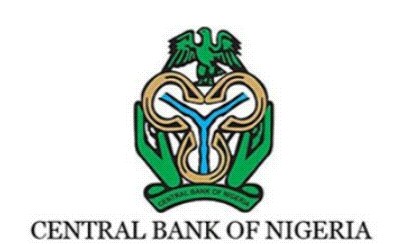The Central Bank of Nigeria (CBN) has warned that the economy faces inflation and financial stability risks over the short-to medium-term if expected huge election spending is not checked.
CBN Deputy Governor (Corporate Services) Adamu Edward Lamtek explained in his personal statement at the last Monetary Policy Committee (MPC) meeting released yesterday by the CBN that if excess liquidity was allowed to build up, the demand for foreign exchange could shoot up in the second half of 2018 and throw the naira exchange rate out of equilibrium.
Lamtek said: “Such an adverse scenario must be prevented through a proactive monetary policy. This is justified by the reality that exchange rate stability is critical to the current recovery in economic growth and the gradual disinflation. Added to this is that a stable exchange rate should, in the minimum, prevent further deterioration of foreign currency denominated assets of the banking system and improve the resilience of the industry”.
He said these concerns surely called for a forward-looking and cautious approach to policy. “I see the need for greater coordination of monetary and fiscal policies and continued engagement of critical stakeholders to address misinformation and better anchor expectations,” he said.
“In addition, I reckoned that some of the supportive administrative measures put in place since last year by the Bank need more time to work their way fully through the economy. I am equally persuaded by the commitment of the Federal Government to the Economic Recovery and Growth Plan (ERGP), especially in the area of infrastructure development, which continues to be relevant to sustaining and deepening growth and development of the country in the medium to long-term,” he said.
He insisted that the outlook for domestic liquidity, based on expected fiscal actions and election spending, is worrisome and that with an impending Federal Government budget outlay of over N8 trillion and deficit of about N2 trillion for 2018, the short-term fiscal outlook appears expansive. “The delay in the passage of the budget could result in substantial injections in the second half of fiscal 2018 in an attempt to meet planned commitments. The immediate effect of this, combined with the repayment of local debt by the government and election spending would be a surge in banking system liquidity,” he said.
He said Nigeria’s stock of external reserves continues to grow on account of reduced imports, improved inflows from more favourable oil prices, and increased autonomous inflows through the Investors’ and Exporters’ Foreign Exchange (I&E) Window.
He said that confidence in the economy is building as the naira exchange rate continues to be stable and the premium between the bureau de change and interbank market segments narrows.
“The parallel market premium continues to shrink as legitimate foreign exchange transactions migrate to the formal market. It does therefore appear that the bold reforms of the Central Bank on forex policy and in the foreign exchange market in 2016 and 2017 are paying off. It is gratifying that the benefits of these reforms have stretched beyond the stability of the naira exchange rate,” he said.
Continuing, he said some manufacturing outfits have resorted to using locally available alternatives as raw materials, just as interest in domestic production of certain classes of food like rice and tomato products is growing. Likewise, capital market indicators have trended upward partly in response to positive market sentiments occasioned by the gradual improvement in the macro-economy.
“Monetary policy cannot, at the same time, be expansionary. At 14.33 per cent in February 2018, inflation is still significantly higher than the Monetary Policy Committee’s preferred range of 6 –9 per cent. Second, the economic recovery we have seen so far has benefitted partly from improved investment inflows. As a direct consequence, the country’s external reserves’ position has relatively improved, just as confidence in the economy,” he said.
According to him, rising yields in advanced economies, following the drift towards policy normalization as global inflation picks up, poses a significant risk to in-bound investments. This threat is mitigated by a stable naira exchange rate and competitive yields locally. For this purpose, we will need positive interest rates, as do most emerging markets and developing economies.
“This means that inflation needs to moderate further. Third, there is still work to be done to fully contain banking system fragilities which increased in the wake of the stagflation in 2015 through 2016. The non-performing loans ratio continues to be in excess of the bank’s desired level”.
“Among other challenges, banks have had difficulty with their foreign currency denominated liabilities (loans) as the exchange rate moved against borrowers as from 2015. Therefore, from a financial stability standpoint, any threat to the naira exchange rate stability must be viewed seriously and promptly addressed to forestall another exchange rate shock,” he advised.
Source:The Nation








